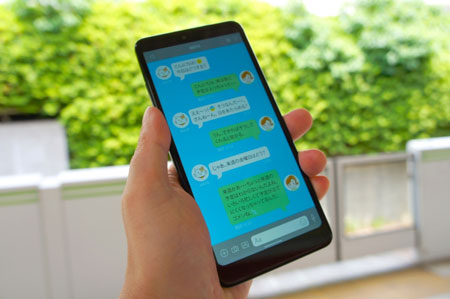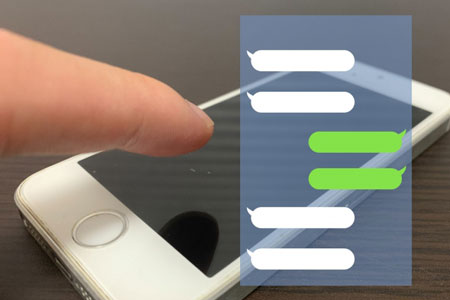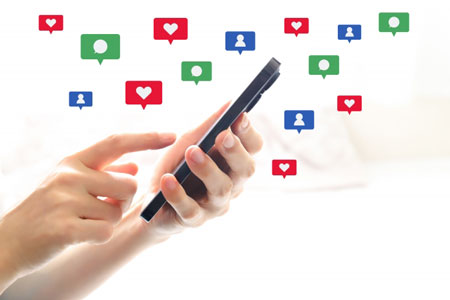
In Japan, the usage of messaging apps differs significantly from those seen in the U.S. and other major developed countries. This can be attributed to cultural differences, the unique features of these apps, and the way they integrate into the daily lives of Japanese users. The major messaging apps in Japan include LINE, WhatsApp, and Facebook Messenger, each serving distinct purposes and user bases.
Popularity: LINE is the most popular messaging app in Japan, with a deep integration into the daily life of its users.
Features: It offers various features, such as free voice/video calls, group chats, and a wide range of emoticons and stickers, many of which reflect Japanese culture and trends. There is also LINE News, which offers tailored news feeds, and is also widely used.
Cultural Integration: LINE’s stickers are a cultural phenomenon in Japan, often featuring popular characters from manga, anime, and Japanese pop culture. These stickers are more than just fun; they play a crucial role in communication, conveying emotions and nuances sometimes lost in text alone.
Business Use: Unlike in many Western countries where apps like Teams are prevalent for workplace communication, LINE is commonly used for both personal and professional communication in Japan.
Usage: While not as popular as LINE, WhatsApp is used by those who maintain international connections. Its popularity in countries outside of Japan makes it one of the go-to apps for international communication.
Features: Offering standard features like text messaging, voice/video calls, WhatsApp doesn’t have the same customization as LINE, however, its end-to-end encryption appeals to users who prioritize security.
Professional Context: It's less integrated into professional settings in Japan and is mostly used for personal communication, especially with contacts overseas.
Popularity: Facebook Messenger has a more niche role in Japan. It's primarily used by those who are active on Facebook. -
Use Case: Messenger serves as a complementary tool for those who engage with international contacts through Facebook, but it’s not a primary messaging app for most Japanese users.
Slack -Global Business Users
Popularity: Slack's Japanese user base has grown rapidly, making Japan its second-largest market globally. This growth reflects the platform's alignment with Japan's push for organizational change and transparency.
Business Use: Slack in Japan is notably integrated into the push for work-style reform: a movement aimed at improving work environments, productivity, and work-life balance. Japanese companies, ranging from large corporations like Yahoo! Japan to smaller startups, use Slack as a collaboration hub. The platform's ability to bring together diverse teams and information has made it an essential tool in this reform.
 Features: Google Chat, is part of the broader Google Workspace, and benefits from its widespread use in Japan. Its integration with other Google tools like Gmail and Google Drive makes it a convenient choice for businesses and teams already embedded in the Google ecosystem.
Features: Google Chat, is part of the broader Google Workspace, and benefits from its widespread use in Japan. Its integration with other Google tools like Gmail and Google Drive makes it a convenient choice for businesses and teams already embedded in the Google ecosystem.
Users: Google Chat's simplicity and integration with Google's interface appeals to Japanese users who prefer a familiar and straightforward communication solution.
About: Chatwork, being a messaging app made in Japan, is particularly tailored to the local business environment. Its features such as group chat, task management, and file sharing are aligned with the specific communication and collaboration needs of Japanese businesses.
Local: Chatwork's Japanese start and its understanding of Japanese work culture have contributed to its popularity, especially among businesses looking for an efficient and culturally relevant communication tool.
Privacy and Anonymity: Japanese users generally prefer a higher level of privacy in their digital communication. Apps like LINE cater to this by offering features that allow users to add contacts without revealing phone numbers and other details.
Integration with Services: Messaging apps in Japan often integrate with various services like payment and news, making them more of a lifestyle platform than just a communication tool.
Stickers and Emoticons: The use of stickers and emoticons is far more prevalent in Japan. They are used to express emotions, humor, and respect, playing a vital role in digital communication etiquette.
App Diversity: In the U.S. and many other developed countries, apps like WhatsApp and Facebook Messenger are more popular, with a significant portion of communication also happening through SMS and email.
Workplace Communication: In contrast to Japan’s use of LINE for personal purposes, countries like the U.S. often use specialized apps like Microsoft Teams for workplace communication.
In conclusion, the landscape of messaging apps in Japan is characterized by a blend of cultural nuances, integration of lifestyle services, and a preference for privacy and security. This contrasts with usage patterns in the U.S. and other developed countries, where messaging apps are often more segmented in their use and less integrated into broader aspects of daily life.
You may also be interested in:

Feel free to contact us now. Our multi-lingual experts are ready to help you.
Mahana Corporation